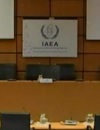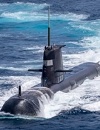 |
||
|
CGN is being forced out of Britain AtomInfo.Ru, PUBLISHED 30.11.2022 The recent decision of the British government on public investment in the Sizewell C NPP construction project is equivalent to a complete withdrawal from the project of the Chinese state corporation CGN. Chinese strategy Chinese nuclear giants CNNC and CGN have a lot in common with Rosatom in their structure, however, unlike the Russians, their portfolio of foreign orders for the construction of nuclear units can be said to be empty. From this point of view, the units built by CNNC in Pakistan can be mentioned as the only Chinese success, but it is difficult to call it a victory by the ultimate rating, since only Chinese companies can build nuclear power plants in Pakistan due to the twists of international law. Chinese analysts have never said out loud the strategy that should have been chosen by the sworn friends of CNNC and CGN to repeat the foreign successes of Rosatom. One can restore the adopted strategy. studying the ways and actions of Chinese corporations. It is obvious that in the struggle for foreign orders, Chinese nuclear scientists have relied on the provision of loans. But they went even further. To overcome the natural doubts about the ability of CNNC and CGN to implement major projects outside of China, the following approach was adopted: "We will pay you to build a unit or units with reactors of your choice, and for this you will then allow us to build a unit or units with Chinese reactors." Fortunately, the Chinese nuclear scientists have enough money for such generosity. CNNC adhered to this strategy in Argentina (heavy water unit first, then "Dragon"), and CGN - in Romania (heavy water units at the Chernavoda nuclear power plant and a possible second nuclear power plant with Dragons) and Britain (EPR first, then Dragon). In all three cases, the Chinese strategy failed. Chinese analysts could not adequately take into account in their calculations and forecasts the risks of political opposition from those forces that do not like the technological cooperation of their countries with China. The CGN corporation was ousted from Romania in 2020, and in 2022 the participation of CGN in the British new construction program is coming to an end. Unsuccessful results The Chinese Guangdong corporation CGN planned the conquest of Britain as follows. At the first stage, the Chinese acquired about a third of the shares of the two-unit Hinkley Point C nuclear power plant under construction with EPR reactors. At the second stage, CGN agreed to invest 20% in the cost of construction of the Sizewell C NPP, also with EPR. Finally, at the third stage, the construction of the Bradwell B nuclear power plant was supposed, but with Chinese Dragons (Hualong Ones). The appetites of the Guangdong nuclear managers were not limited to the Bradwell B nuclear power plant alone. During informal communication, they hinted that they were ready to build blocks with Dragons on other sites, of which Britain has a lot. In parallel, in 2016, CGN started the certification procedure for the UK HPR-1000 project, the name of the Dragon project adapted to British requirements. The first signs that not everything will go smoothly for CGN appeared even when discussing the construction of the Hinkley Point C nuclear power plant. At that time, London eventually chose not to quarrel with Beijing, especially since it was impossible to build this plant without Chinese money. But from the Sizewell C project London set out to force the Chinese out seriously. In September 2021, it became known that the British government was preparing a deal to join the shareholders of the future plant - of course, instead of CGN. In November 2022, these plans of London were realized. It is no longer necessary to talk about the Bradwell B nuclear power plant and other British plants with Dragons in such conditions. It is known that CGN received an undisclosed money for the exit from the Sizewell C NPP, which was recognized to cover the expenses incurred by the corporation. The Chinese corporation does not make any official statements and does not even formally abandon the Bradwell B NPP, which in principle corresponds to the well-established practice in the Chinese nuclear industry to avoid harsh statements on foreign deals. The French company EDF and the British state budget will now be responsible for financing the construction of the Sizewell C NPP. If Britain is ready to implement the project, then EDF is in no hurry to make a final decision. Chinese corporations have learned lessons from the failure of a strategy to promote their reactor technologies abroad. So, in the new agreement with Argentina, CNNC corporation signed up exclusively for the construction of the Dragon unit, skipping the "First we will pay for your heavy-water reactor" stage. In principle, someday CNNC will be ready to help the Argentines with the heavy water truck, but only after commissioning the unit with the Dragon. Topics: Great Britain, China, Opinions Other news: 423 nuclear units are operating in the world, 57 units are under construction In 2022, construction started for 7 units, 4 with Chinese reactors and 3 with Russian ones. WANO announces the winners of the 2022 Nuclear Excellence Awards WANO presents the awards during each WANO Biennial General Meeting. The Paks II Nuclear Power Plant receives construction licence This is the first time that a power unit with this type of reactor has been issued a construction licence in the European Union. |
Hero of the day 
Over 3000 Attend ATOMEXPO 2022 International Forum The 12th ATOMEXPO 2022 International Forum took place in Sochi (Russia) on 21-22 November. Over 3,000 guests, including businesspeople, government agencies, and international organisations, from Russia and 65 other countries attended the event. INTERVIEW
FR22 concluded its work OPINION
Zhao Xuelin, |

